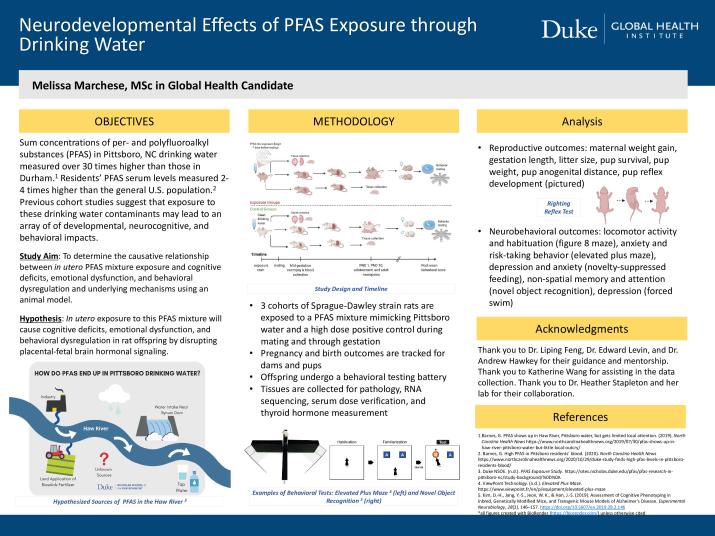Neurodevelopmental Effects of PFAS Exposure through Drinking Water

Neurodevelopmental Effects of PFAS Exposure through Drinking Water
Project overview
Per- and polyfluoroalkyl substances (PFAS) are persistent organic pollutants that have become globally ubiquitous in the environment and in humans. One population facing disproportionate exposure risk to PFAS through their drinking water is Pittsboro, NC. In utero PFAS exposure is associated with an array of long-term health effects, however, the mechanism of toxicity is poorly understood. This study will address the neurodevelopmental effects of gestational exposure to clearly defined PFAS concentrations seen in Pittsboro’s drinking water. Animal models will be used to investigate a cause-and-effect relationship between this environmental exposure and potential adverse health outcomes that will not be seen on the population level for many years. To quantitatively assess toxicity, animal subjects exposed to PFAS-laden drinking water during gestation will undergo a battery of assessments from an established behavioral testing framework. Pathological analyses of placental and brain tissue will demonstrate any changes at the phenotype level. The aim of this study is to determine the causative relationship between in utero PFAS mixture exposure and cognitive deficits, emotional dysfunction, and behavioral dysregulation and the underlying mechanisms.
Last updated on June 26, 2023
